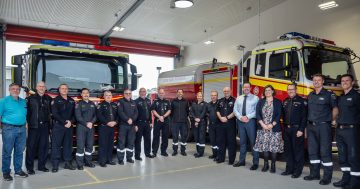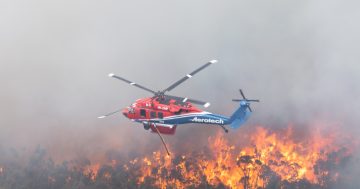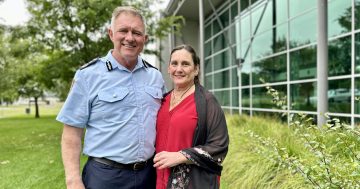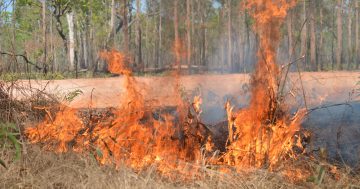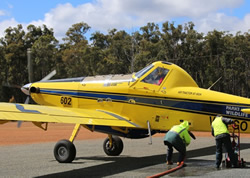 Prisoners and staff from Bunbury Regional Prison have contributed almost 200 hours of loading and reloading fixed-wing aircraft to fly as water bombers in the recent season’s firefighting effort in the State’s south-west.
Prisoners and staff from Bunbury Regional Prison have contributed almost 200 hours of loading and reloading fixed-wing aircraft to fly as water bombers in the recent season’s firefighting effort in the State’s south-west.
The minimum-security prisoners on community work duties under staff supervision have been on 12 or more call-outs so far and are overseen by the Department of Biodiversity, Conservation and Attractions (DBCA) which manages the WA’s water bomber fleet and the annual training of prisoners at a number of correctional facilities.
The prisoners and volunteers among the prison staff are taught how to load the planes with water, foam and fire retardant.
Assistant Superintendent of the prison, Shane Dowell said the prison officers and select prisoners were deployed to fill up water bombers or “air tractors” that supported the ground crews.
“We had up to eight planes at a time and you are certainly kept on the go,” Assistant Superintendent Dowell said, “(But) normally it is three or four planes at the most.”
“Teamwork was vital to safely and efficiently getting the water bombers ready in timely fashion under the pressure of responding to threatening bushfires,” he said.
“Through their firefighting support work the prisoners are not only helping deliver an essential service to the community but also developing skills that may help them when released.”
He said that with recent bushfires in the Shire of Donnybrook-Balingup being sparked by lightning strikes, thousands of hectares of property have been burnt through and hundreds of firefighters were required to combat and eventually contain the blazes.
Assistant Superintendent Dowell said trained prison staff and 10 minimum-security prisoners from the Bunbury facility also responded to the call-outs.
“Teamwork was vital to safely and efficiently getting the water bombers ready in timely fashion under the pressure of responding to threatening bushfires,” he said.
“Through their firefighting support work the prisoners are not only helping deliver an essential service to the community but also developing skills that may help them when released,” the Assistant Superintendent said.


